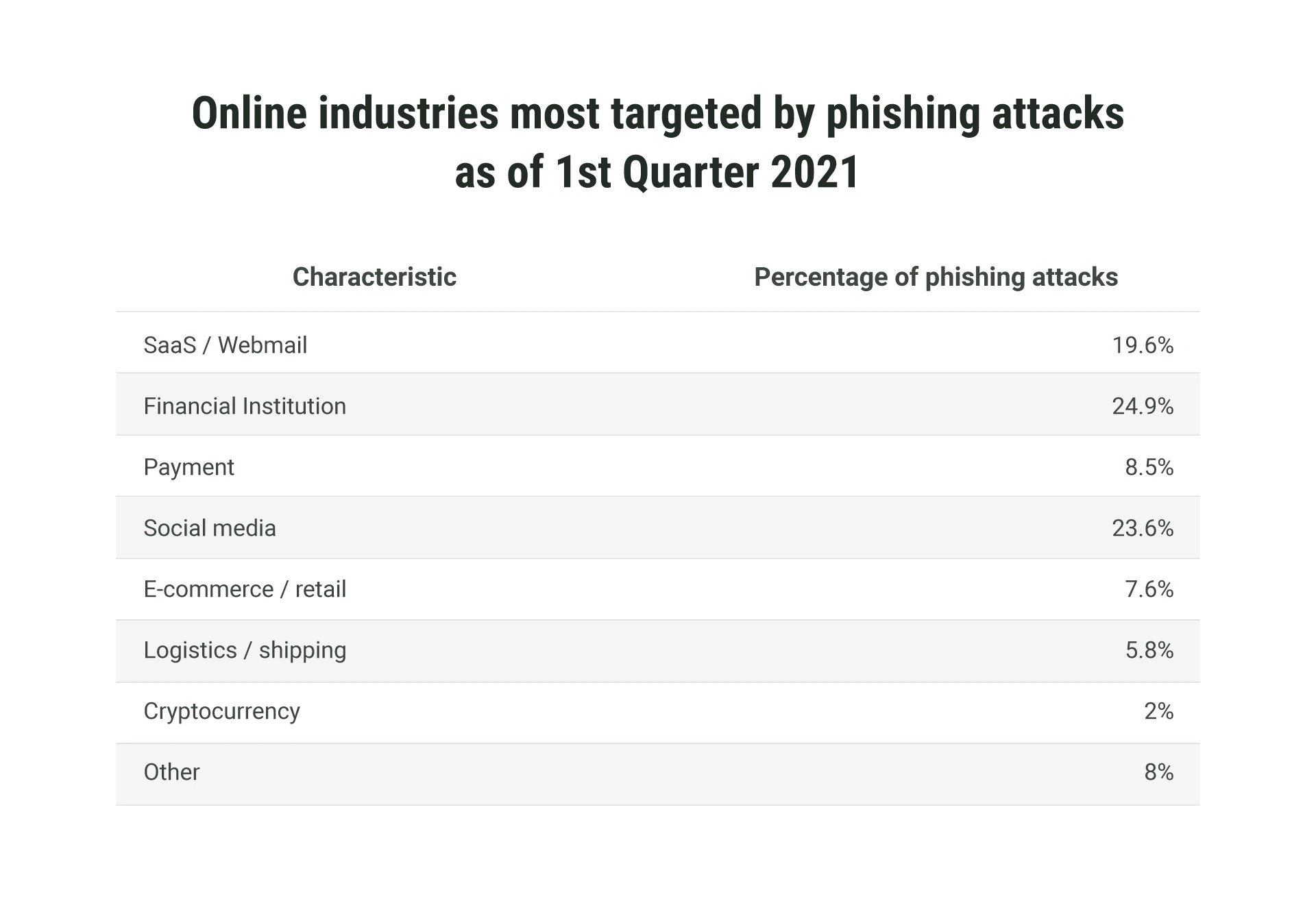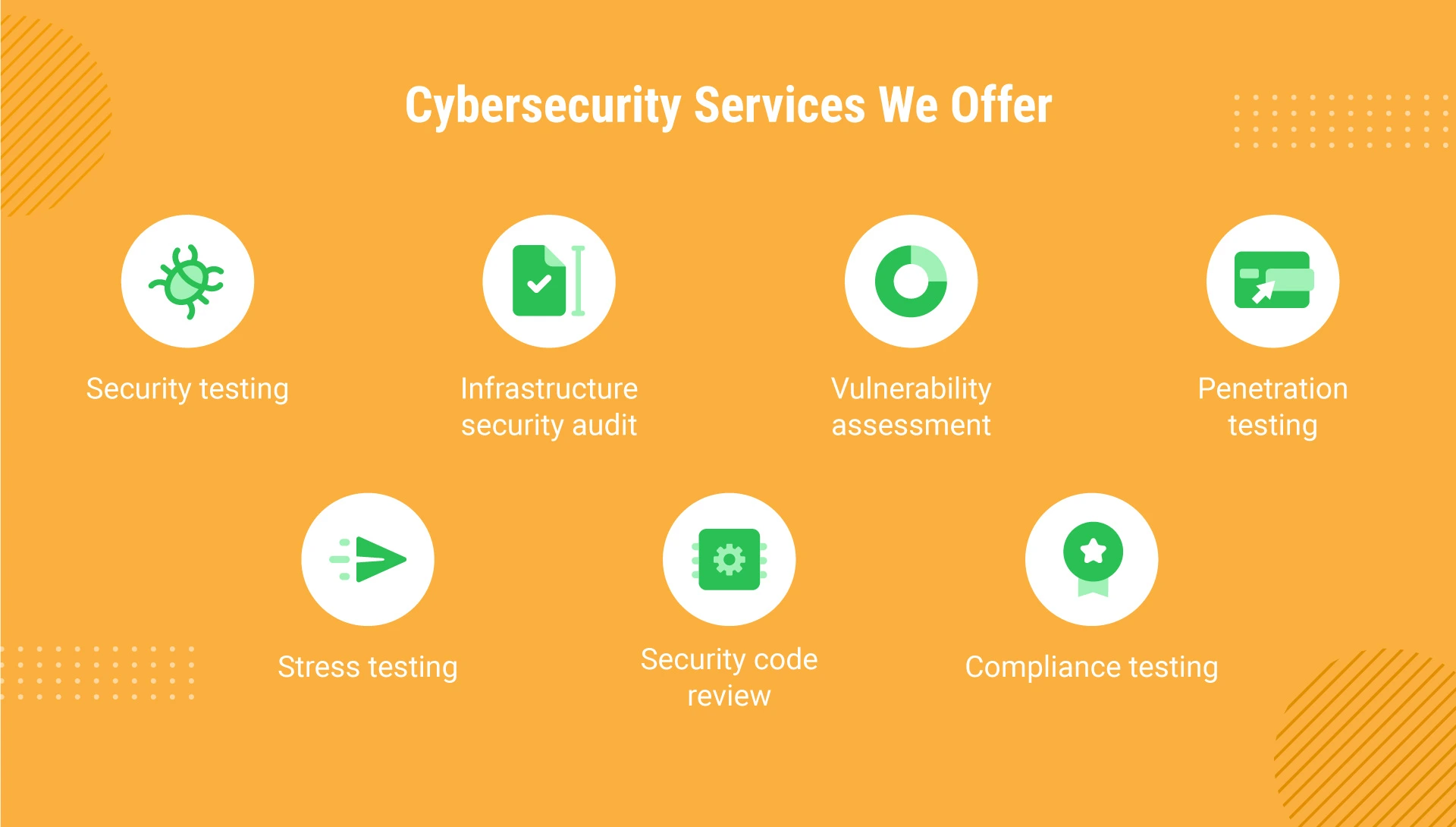E-Commerce Security: Key Threats & Best Practices to Avoid Breaches
Table of contents
- Common E-Сommerce Security Threats & Issues
- Financial frauds
- Phishing attacks
- DDoS attacks
- Vulnerability attacks
- Bots
- What You Should Know about E-Commerce Security
- E-commerce security basics
- Privacy
- Integrity
- Authentication
- Non-repudiation
- Online security best practices in e-commerce
- Use HTTPS protocols and SSL certificates
- Ensure payment gateway security
- Control access to the website’s admin panel
- Apply firewalls
- Utilize special monitoring software to track malicious activity
- How Emerline Helps E-commerce Businesses Stay Protected
Running an e-commerce website is hard enough, and dealing with security threats is among the major challenges to address in 2023. As the COVID-19 pandemic pushed customers towards e-commerce, its share of total retail sales has been significantly increased since 2020 and is expected to grow in the coming years. With e-commerce being on the rise, fraudsters are hot on the track of online shopping businesses and their customers.
According to a Juniper research report, e-commerce retailers are at risk of losing over $20 billion in 2021 due to online fraudulent activities. This represents an 18% increase, compared to $17.5 billion recorded last year. Thus, it’s essential to be aware of security aspects to be able to prevent security breaches.
In our article, we’ll look into different types of threats in e-commerce and how to avoid them.
Common E-Сommerce Security Threats & Issues
Privacy and security issues can lead to serious outcomes for e-commerce businesses when it comes to user experience and revenue rates. According to a recent survey conducted by PYMNTS, 65% of eCommerce shoppers “are likely to terminate their relationships with merchants after experiencing even a single instance of data theft or payment fraud.”
Some types of online threats don’t even require sophisticated technology on the hackers’ part. For example, the eBay database of personal details of about 145 million users wasn’t hacked due to the extraordinary capabilities of hackers but due to hackers compromising the login details of three key eBay employees. This is just one example of the types of attacks that may occur in the e-commerce industry. We’ve compiled a list of the five most dangerous security threats for e-commerce businesses to watch out for in 2023 and five practical tips on how to eliminate them.
Financial frauds
Financial frauds are among the most significant online security threats that pose a whopping impact on e-commerce businesses. Identity thefts, or so-called ‘’silent’’ fraud, typically take place when customers’ credit or debit card credentials are lost or stolen. Fraudsters make purchases online, while online retailers process transactions, not knowing that the credentials used had been stolen. Once the real users are aware of the fact, they request a refund, which results in lost revenue. According to recent statistics, this type of financial fraud makes up 35.4% of all identity theft fraud, and China is expected to be the largest e-commerce fraud market in the world.
Phishing attacks
7.6 percent of all phishing attacks were directed towards e-commerce websites, making the industry one of the most targeted by phishing attacks as of the 1st quarter of 2021.

Phishing attacks are dangerous for both clients and business owners. Let us explain how it works using the following examples:
- How phishing is used against customers. Hackers masquerade as your online store, for example, by making a copy of your website page to send fake emails to your clients to make them reveal their sensitive information.
- How phishing is used against e-commerce businesses. A hacker can create a fake page that looks like a login page to access the admin panel of your e-commerce site.
Then they send a message that something is wrong and ask you to log in. By following the link in the phishing email, you give hackers access to your actual website, which leads to committing crime against you.
DDoS attacks
DDoS attacks are nothing new in the e-commerce industry. Unfortunately, they still pose a negative impact on e-commerce websites, making them inaccessible for potential customers and causing a loss of revenue from legitimate traffic. While online retailers can experience immediate financial impacts, the long-term effects are even more serious.
According to research by the German industry association Bitkom, cyber attacks cost far more than just lost income. In one online example, the cost of a cyber attack on an online store included lost income, the cost of IT support staff, recovery marketing, and other specialists amounting to €185,000.
Below are the ways how DDoS attacks can affect e-commerce websites:
- The website will be overloaded and inaccessible as the servers are paralyzed.
- DDoS attacks can slow down the e-commerce website’s loading, while making your user experience extremely bad and conversion rates lower.
- Your development team won’t be able to make back-end operations because of slow servers.
Vulnerability attacks
Hackers often target e-commerce websites with vulnerabilities. Among the common security vulnerabilities in e-commerce systems are SQL injections and Cross-Site Scripting (XSS). How do they affect the e-commerce website’s security?
- SQL injections. This hacking technique implies targeting query submission forms to target the database of your e-commerce website. Once the malicious code is injected, the data is deleted from the database.
- XSS (Cross-Site Scripting). Your e-commerce website is infected with malicious code to target your customers. To eliminate such hacker attacks, online retailers typically implement the Content Security Policy (CSP).
Bots
Bad bots created by hackers continue to affect the e-commerce industry. A recent report by Imperva has provided insight into the impact of bad bots targeting e-commerce websites. Among the malicious activities are unauthorized price scraping, inventory checking, denial of inventory, scalping, customer account takeover, gift card abuse, spam comments, and transaction fraud. Each of these problems alone is enough to have a serious impact on the performance of e-commerce businesses.
Here’s a summary of business problems caused by bad bots according to the report by Imperva.

What You Should Know about E-Commerce Security
Before we dive deep into how to prevent online threats, have a quick look at the basic terms you need to know when starting your e-commerce business.
E-commerce security basics
Privacy
It’s vital to protect customer data from attacks that can lead to leaks. You must remember that customers who entrust their personal information to you are sure that it’s never shared with third parties. To ensure data privacy, online retailers should apply antivirus protection, data encryption, firewalls, and other privacy-related software.
Integrity
Another basic concept of e-commerce security is integrity that stands for using customer information without changing it. If any piece of information is altered without the customer's permission, you can’t say that your e-commerce enterprise is secure.
Authentication
Authentication requires a customer and a seller to be real. To prove the authorized access, customers may be asked to prove their identity by sending the bank information, a PIN-code, etc. This well-organized authentication process is one of the key steps to secure online purchases.
Non-repudiation
The non-repudiation concept means that neither a customer nor a seller can deny their actions related to transaction execution. It’s necessary to follow this principle to ensure transactions are confirmed and both parties are ready to complete them.
Online security best practices in e-commerce
Here are a few useful tips on how to secure your e-commerce website.
Use HTTPS protocols and SSL certificates
Using HTTPS protocols instead of outdated HTTP protocols makes your web store less vulnerable to cyber-attacks. They not only secure the information submitted by users but also help you gain trust among your potential customers. Most browsers now display a message warning users not to visit the website if it doesn’t use HTTPS protocols or even block access to such websites that are considered insecure.
This may prevent your customers from visiting your website, not to mention making purchases. HTTPS protocols are also beneficial for SEO as Google applies them as a ranking factor. To switch to HTTPS protocols, you need to obtain SSL certificates from your hosting company. With SSL certificates, all the information sent to your e-commerce website will be encrypted and protected against data hacks.
Ensure payment gateway security
When purchasing online, users want to be sure that the web store uses a reliable payment gateway to process transactions. Thus, it’s crucial to take careful measures to prevent sensitive data thefts. To eliminate credit and debit cards fraud, don’t store credit card information on your servers and integrate reliable third-party payment gateways, including PayPal, Stripe, and others. You should also obtain a Payment Card Industry Data Security Standard (PCI DSS) accreditation.
Control access to the website’s admin panel
Don’t neglect using strong passwords only to access the admin panel of your e-commerce website. You should also remember to update them as frequently as possible. Following this principle will help you control access to the website.
Apply firewalls
Another technique to prevent online threats is implementing firewalls. This network security system will monitor traffic that goes through your e-commerce website or portal and block the traffic that doesn’t meet your security parameters. By analyzing which traffic is legitimate and which one will harm your website performance, firewalls can protect your website from DDoS attacks, SQL injections, cross-site scripting, and other security threats.
Utilize special monitoring software to track malicious activity
To stay up-to-date on security issues that may affect your e-commerce business, you can install special software to monitor suspicious activity. Artificial Intelligence and Machine Learning can help you prevent most security threats. For example, some cybersecurity tools can feature advanced security analytics to monitor user and network behavior. This will provide insight into the intentions of individual IP addresses, websites, etc.

How Emerline Helps E-commerce Businesses Stay Protected
If you are planning to start an e-commerce business or already run an e-commerce website and want to know how to improve your e-commerce website security, Emerline’s cybersecurity consulting services are at your disposal.

If you have an e-commerce project idea in mind or need a cybersecurity audit for your e-commerce website, book a free consultation.
Updated on Mar 27, 2025





